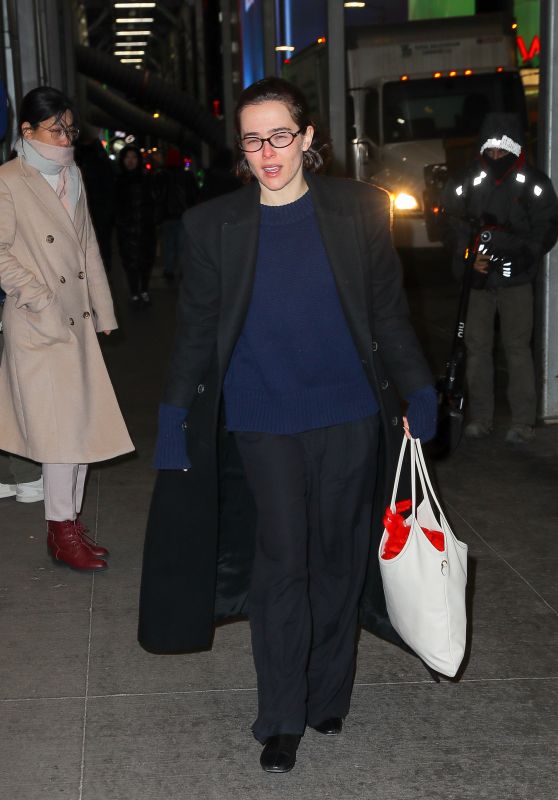This claim, included in Universal’s thorough and impressive list of box office achievements for 2024, is technically true: “Domestically ‘Wicked‘ is now … the highest-grossing Broadway adaptation of all-time at the domestic office ahead of ‘Grease‘ ($188.62M).”
Also technically true is that “The Grinch” is bigger than “Gone with the Wind,” “Sing” is bigger than “Jaws,” and “Five Nights at Freddy’s” is bigger than “The Godfather.” Also, the 1977 first “Star Wars” is only the third biggest success of that franchise.
Presenting grosses without adjusting skews the real picture of how they compare. It is a prime case of film history erasure, an all-too common occurrence these days. The somewhat (but not impossible in most cases) effort to sort out the true success of films through history starts with adjusting box office takes to current ticket prices. Normally, that is fairly simple, since we know the costs by year and can do the math. For top musicals, it gets a bit trickier.


Most of the biggest musicals from 1955 (“Oklahoma”) through 1971 (“Fiddler on the Roof”) were roadshows. That meant their initial presentations in big cities were exclusive runs, often for months, at prices much higher than the average ticket price. That means adjusting their gross based on the average at the time they played doesn’t work. For all these films, a substantial amount — likely even the majority — of their tickets came from what was advertised as “popular” prices, the average at the time.
So, how to calculate the historically and mathematically more accurate position of “Wicked” among both Broadway musical and play film adaptations? Even with the basic numbers available, the film’s performance is so impressive, that it actually may stand out more than the “highest-grossing” claim Universal is boasting already.
Through seven weeks of release, “Wicked” will has grossed around $454 million in the U.S./Canada. It looks to end up close to $500 million (it is available on PVOD, but Oscar nominations next week should boost it). That will make it, at a minimum, one of the top five Broadway adaptations ever. It could possibly go as high as third place. To place anywhere in the top 10, let alone in such a short period, is a terrific achievement.
But because of the difficulties in figuring out the true comparable takes of the other films on that top 10 list, it isn’t clear whether “Wicked” is the third biggest Broadway adaptation or perhaps the sixth. No matter. The other films in its league are all considered to be huge successes, and thus, “Wicked” is as well, by virtue of its company.
 ‘The Sound of Music‘
‘The Sound of Music‘The top two are easy enough to figure. “The Sound of Music,” if adjusted to 2022 prices (they are higher now), grossed over $1.3 billion in the U.S./Canada per Box Office Mojo. Because it was initially a roadshow presentation — again: an elevated presentation at higher prices — its early dates had tickets above the average level for 1965. That, in turn, reduces the higher adjusted amount, which is based on a lower level. It becomes more difficult to be precise, but an educated guess is its adjusted total is still over $1 billion. That’s double “Wicked.”
Easier still is the non-roadshow “Grease” in 1978. It stands at over $700 million for second place, with no roadshow numbers to parse.
Then it becomes complicated. “My Fair Lady” (1964), “West Side Story” (1961), and “Fiddler on the Roof” (1971) all look to be over $500 million. However, all three were roadshows initially, so it’s possible they fall below the half-billion mark, again like “The Sound of Music” when adjusted. (“Fiddler on the Roof” oddly doesn’t appear on Box Office Mojo’s adjusted list, but it was the #1 film of 1971 by some distance, and the reported film rental figures suggest an over $500 million total adjusted before taking into account the roadshow factor.)
Among that group of five films, three of which “Wicked” either outgrossed or came close to, are three Oscar Best Picture winners (“West Side Story,” “My Fair Lady,” and “The Sound of Music”). The other two Broadway musical adaptations to win (“Oliver” and “Chicago”) grossed, adjusted, around $300 million, below “Wicked.”
The other four musicals among the apparent all-time top 10 are “Funny Girl,” “South Pacific,” “Oklahoma,” and “Guys and Dolls.” In all, that’s a killer’s row of best-known Broadway musicals on film, and just entering the list is a huge win. Being as high as third would be phenomenal.
Other big-name musicals lower on the list, though still hits, include “Cabaret,” “Les Misérables,” “Mamma Mia,” and “Dreamgirls.” Meantime, other Broadway shows of note that flopped as movies include “Cats,” “The Color Purple,” and “Rent.” “The Phantom of the Opera” and “Sweeney Todd,” at best, were mildly successful.
The most impressive achievement of all is that among the 10 biggest, the most recent “Grease,” came out 46 years ago. Most were boosted by the prestige of a roadshow presentation. Broadway musicals lost their appeal by the 1970s, with only intermittent success (usually owed to rock-related elements). That “Wicked” has managed this is a huge credit to all involved.
 ‘Mary Poppins’©Walt Disney Co./Courtesy Everett Collection
‘Mary Poppins’©Walt Disney Co./Courtesy Everett CollectionSome other findings: Two non-Broadway musicals rank in the top 10 in the genre. “Mary Poppins” would be either second or third. “The Rocky Horror Picture Show” (on stage in London, but not on Broadway before the movie), with its constant play mostly as a midnight show for nearly a half-century, also looks adjusted to be over $500 million.
Three play adaptations would make the list of 10 biggest Broadway adaptations, with “Mr. Roberts” (1955) leading the way, followed by “Who’s Afraid of Virginia Woolf?” (1967) and “The Odd Couple” (1968). That kind of film is nearly dead. In 2024, “The Piano Lesson” was a rare exception, and that it was made for Netflix, not theatrical, is telling.
For sure, it is impressive — though at some misleading — to mark “Wicked” as the biggest Broadway-to-film hit ever. But a more nuanced look at where it stands among other classics actually makes it appear even more outstanding.
The bounty continues: Universal just announced that in the first seven days of PVOD play, revenues from digital download and rentals came to $70 million. Based on the industry understanding of studio share, that means they earned somewhere around $50 million from that source already.




















 English (US) ·
English (US) ·